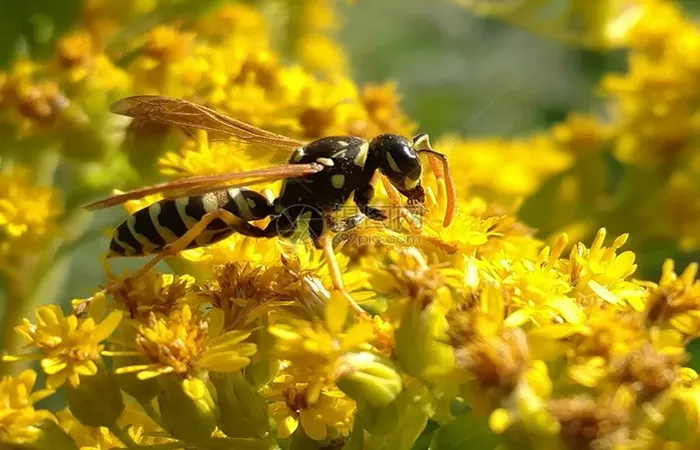Wasps are common insects that can be both helpful and annoying. While they help control pests, their stings can be painful and dangerous for some people. If you want to keep wasps away from your garden or outdoor spaces, planting certain flowers can be an effective and natural solution. This article will explore the types of flowers that wasps dislike and why they avoid them.
Why Do Wasps Avoid Certain Flowers?
Wasps are attracted to sweet smells and bright colors, which they associate with food. However, some flowers produce scents or chemicals that wasps find unpleasant. These flowers often have strong, pungent odors or contain natural repellents that deter wasps. By planting these flowers, you can create a wasp-free zone in your garden.
Flowers That Wasps Hate
Here are some flowers that wasps tend to avoid:
Mint
is a popular herb with a strong scent that wasps dislike. The smell of mint overwhelms their senses, making it hard for them to locate food sources. Planting mint around your garden or outdoor seating areas can help keep wasps away.
Eucalyptus
Eucalyptus has a strong, medicinal smell that wasps find unpleasant. The oil from eucalyptus leaves is often used in natural insect repellents. Planting eucalyptus trees or using eucalyptus oil around your home can deter wasps effectively.
Marigolds
Marigolds are bright, colorful flowers that repel not only wasps but also other pests like mosquitoes and aphids. Their strong scent is unappealing to wasps, making them a great addition to any garden.
Citronella
Citronella is well-known for its ability to repel mosquitoes, but it also works against wasps. The strong citrus smell of citronella plants masks the scents that attract wasps, keeping them at bay.
Basil
Basil is another herb that wasps dislike. Its strong aroma is pleasant to humans but repels wasps and other insects. Planting basil in pots or garden beds can help create a wasp-free environment.
Geraniums
Geraniums produce a scent that wasps find offensive. These flowers are easy to grow and come in a variety of colors, making them a beautiful and practical choice for your garden.
Wormwood
Wormwood has a bitter smell that wasps avoid. This plant is often used in natural insect repellents and can be planted around the perimeter of your garden to keep wasps away.
Lemongrass
Lemongrass has a strong citrus scent that wasps dislike. It is also a key ingredient in many natural insect repellents. Planting lemongrass in your garden can help deter wasps and other pests.
Lavender
Lavender is loved by humans for its calming scent, but wasps find it unpleasant. Planting lavender around your home or garden can help keep wasps away while adding beauty and fragrance to your space.
Thyme
Thyme is a herb with a strong scent that wasps dislike. It is easy to grow and can be planted in garden beds or pots to repel wasps naturally.
How to Use These Flowers Effectively
To maximize the effectiveness of these flowers in repelling wasps, consider the following tips:
Plant Strategically
Place these flowers near areas where you spend time outdoors, such as patios, decks, or garden seating areas. This will create a natural barrier that keeps wasps away.
Use Potted Plants
If you don’t have space for a garden, use potted plants. Place pots of mint, basil, or lavender around your outdoor spaces to deter wasps.
Combine Multiple Plants
Planting a variety of wasp-repelling flowers can enhance their effectiveness. For example, combine marigolds, lavender, and citronella to create a strong deterrent.
Maintain Your Garden
Regularly prune and care for your plants to ensure they remain healthy and continue to produce strong scents that repel wasps.
Why Choose Natural Solutions?
Using flowers to repel wasps is a safe and eco-friendly alternative to chemical insecticides. Chemical sprays can harm beneficial insects like bees and butterflies, while natural solutions target only the pests you want to avoid. Additionally, these flowers add beauty and fragrance to your garden, making it a more enjoyable space for you and your family.
Conclusion
Wasps can be a nuisance, but you don’t have to rely on harmful chemicals to keep them away. By planting flowers like mint, marigolds, and lavender, you can create a natural barrier that deters wasps while enhancing the beauty of your garden. These flowers are easy to grow and maintain, making them a practical choice for anyone looking to enjoy a wasp-free outdoor space.


